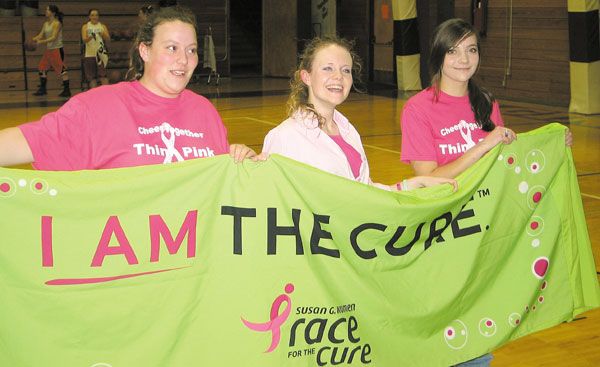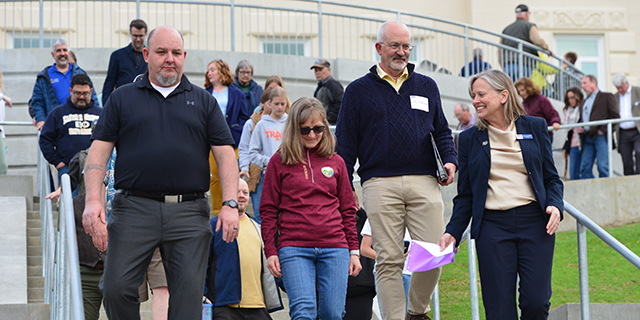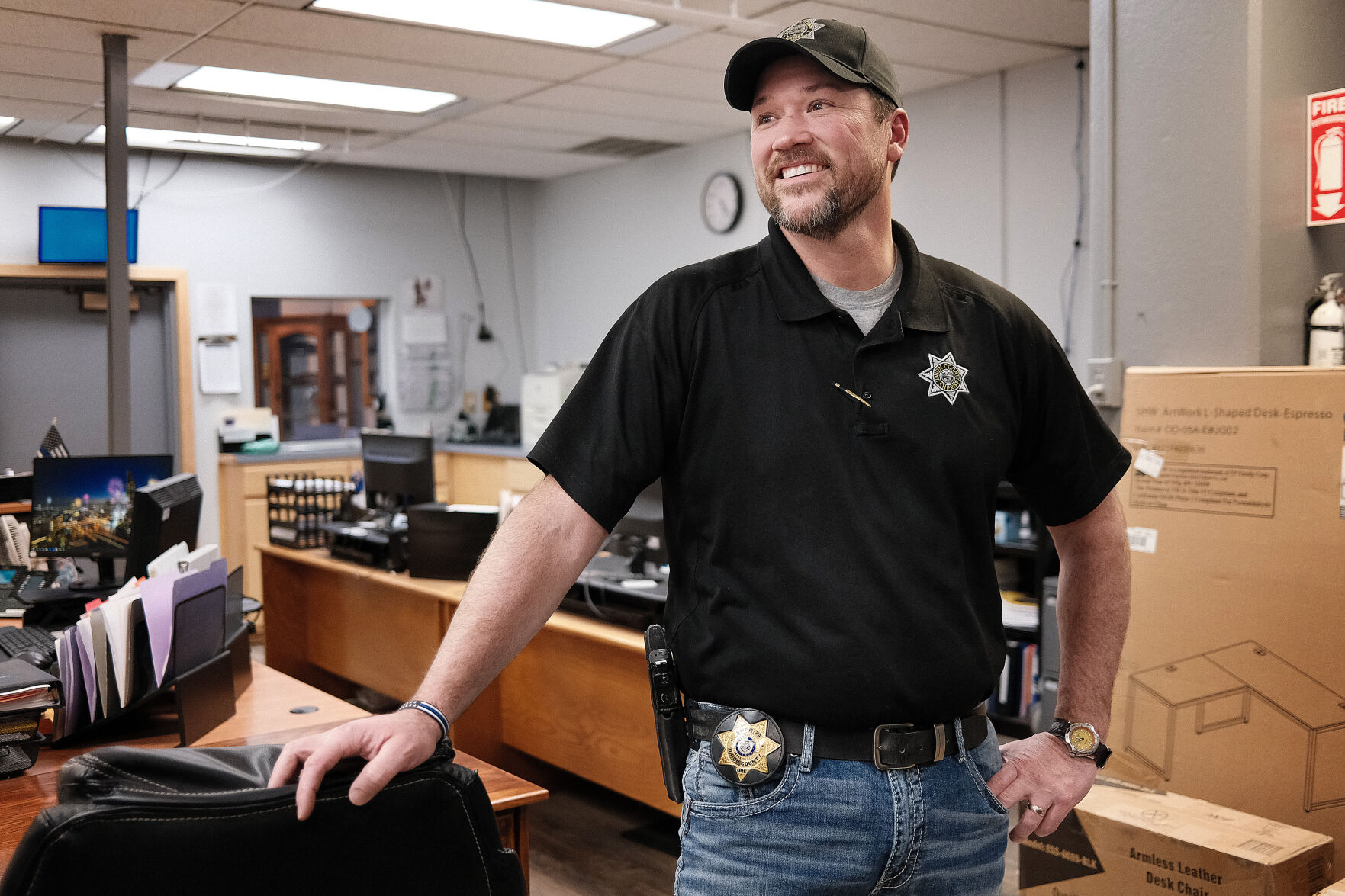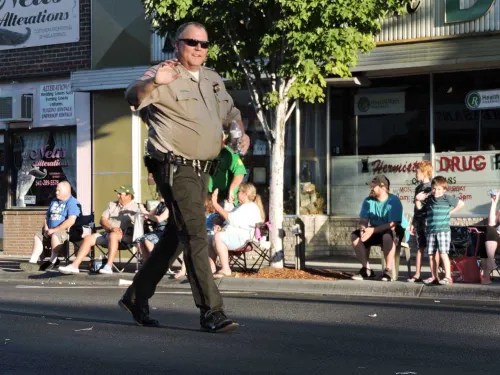fight against breast cancer
Published 3:30 pm Saturday, January 15, 2011

- The Observer Sara Brugger, center, led a program at Elgin High School on breast cancer awareness Thursday. Brugger is with the Oregon and Southwest Washington Affiliate of the Susan G. Komen For The Cure Foundation. She is with EHS students Rachael Carrothers, left, and Emily Hardy. Carrothers and Hardy are leading a breast cancer awareness program at their school.
ELGIN – Rhythm, rhyme, optimism and education.
All are valuable tools in the battle against breast cancer. They are tools that should not be overlooked.
This was the message Sara Brugger, a representative of the Oregon and Southwest Washington affiliate of the Susan G. Komen For The Cure Foundation had for Elgin High School students Thursday.
Brugger discussed the basics of breast cancer at a school assembly, addressing a sobering topic in a way designed to inspire.
“There is a ton of hope,” said Brugger, who is from Vancouver, Wash.
Providing information in a straightforward but inspiring way, Brugger told students to be open about the subject, that the days of it being a taboo subject are gone.
“I wanted to keep it fun and easy to understand. I did not want to scare them,” Brugger said after her talk.
Brugger, who gives presentations at schools throughout the state, seeks to empower students, emphasizing that they have the opportunity to make an impact in the fight against breast cancer.
She presented literature to students Thursday stating “I am the cure,” the rallying cry of the Susan G. Komen Race For The Cure campaign. The slogan means everyone has the opportunity to take matters into their own hands. They can reduce the likelihood of developing breast cancer and boost their odds of surviving it, Brugger said.
Women can reduce their odds of developing breast cancer by maintaining a healthy weight, exercising regularly, limiting alcohol intake and breast feeding. Brugger urged students to take this advice to heart.
“Raise your voices for healthy choices,” Brugger said, a phrase she had groups of students at mid-court shout in unison.
Brugger said about one in eight women will develop breast cancer if they live into their mid-80s.
“One in eight – let’s beat that rate,” Brugger had students shout rhythmically.
Women who do develop breast cancer significantly improve their odds of surviving by catching it early, Brugger reminded students many times Thursday.
“The best protection is early detection,” she said.
Women diagnosed in the early stages of breast cancer have a 98 percent survival rate, Brugger said. Women diagnosed in the latest stage of breast cancer have a 26 percent five-year survival rate.
Women who receive annual mammograms after age 40 increase their chances of early detection in part because they provide doctors with a baseline of X-rays they can refer back to.
The baseline makes it easier for doctors to spot abnormalities since they have a better idea of what a woman’s healthy tissue should look like, Brugger said.
Brugger said all women need to realize they face a real risk of developing breast cancer. Women from families with a history of breast cancer face a greater risk, but 85 percent of those who develop the disease do not have relatives who had it.
Only 10 percent to 15 percent of breast cancers occur because of inherited
risks, according to information distributed at Thursday’s program.
Brugger is a graduate student at Portland State University where she is earning a master’s degree in public health. She believes in making her presentations upbeat because students are more likely to talk with others about what they learned, sharing information which could save the lives of others.
Brugger’s presentation was sponsored by the Oregon and Southwest Washington affiliate of Susan G. Komen Race For The Cure Foundation. She spoke as part of a breast cancer awareness program being conducted at EHS by its Future Business Leaders of America chapter.
Emily Hardy and Rachael Carrothers, members of Elgin FBLA chapter, are leading the program. They received a $1,000 grant from the Susan G. Komen For The Cure Foundation to conduct the public awareness program.





